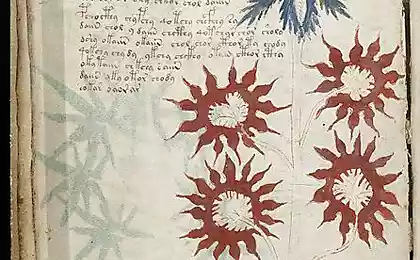849
9 Russian words that surprise foreigners

And we use them postoyanno.My already talked about the words from different languages, which would be useful in Russian. But then we have a set of expressions that are not in other languages. This thoughtful columnist popular publication Business Insider Christina Sterbents. She described a few words that, in its view, would be worth to take note.
Website has translated this article for their readers. Although we believe that much more Russian words that could take root elsewhere in the world.
1. ToskaHotya is a Russian word roughly translates as "emotional pain" or "melancholy", native speakers argue that the Americans can not understand the depth of it. Vladimir Nabokov wrote about it: "Not one word in the English does not transmit all shades of the word" melancholy ". Its greatest depth and pain - it feels more spiritual suffering without any particular reason. On a less painful level - a vague pain of the soul, a passionate desire in the absence of the object of desire, painful longing, a vague anxiety, mental suffering, longing. In some cases, it may be the desire of anyone or anything specific, nostalgia, yearning love. At the lowest level of sadness turns into ennui, boredom ».
2. PoshlostV Story Anton Chekhov's "The Lady with the Dog" character, changing her husband, shouting that it was "vulgar" woman.
"One word encompasses triviality, vulgarity, sexual promiscuity and lack of spirituality," - explains Harvard professor Svetlana Boym.
3. BytieEto noun indicates gipersoznanie or objective and analytical reality. Russian-English dictionaries translate it as being em>. But although the word and is derived from the Russian "to be", English analogue can not pass it on metaphysical values.
4. PerepodvypodvertOdin of the users of the site / r / doesnottranslate explained that this noun is used when speaking about something made "very difficult, almost incomprehensible way».
Word defines itself: for it as much as four consoles, and one is repeated twice.
5. BespredelProfessor-Slavic Studies from New York University's Eliot Borenstein explains the "mess" literally - "without restrictions and limits" (the book "Sex and violence in contemporary Russian popular culture»).
The word also conjures up images of chaos and violence, and translation, which is Google - lawlessness em> ( wickedness em>). This is a condition where an ordinary man is at the mercy of someone acting without regard for the law.
6. PochemuchkaEto word is used in relation to a person (usually a child) who asks a lot of questions.
Although English speakers can use a synonym for busybody em> ( annoying em>), «Who Knows?" Does not have this negative connotation in value. In fact, parents or grandparents often use the word tenderness.
7. SushnyakKak in English, in Russian there are many words to convey the state of drunkenness - its stage, and so the hangover.
"Dead wood" means "a strong thirst and dryness in the throat that you feel waking up after a night of drinking».
It can also be interpreted as a synonym sayings "have spoiled cat's mouth».
8. NedoperepilEsche one word associated with drinking. It means that someone drank more than normal, but less than the amount that it is, in principle, could have a drink.
9. BeloruchkaEto word describes a person who does not want to do any dirty work. According to Moscow Times, the Russian language word with the roots of the "black" and "white" are a thousand shades of meaning "good" and "bad».
via www.businessinsider.com/untranslatable-russian-words-2014-4
























